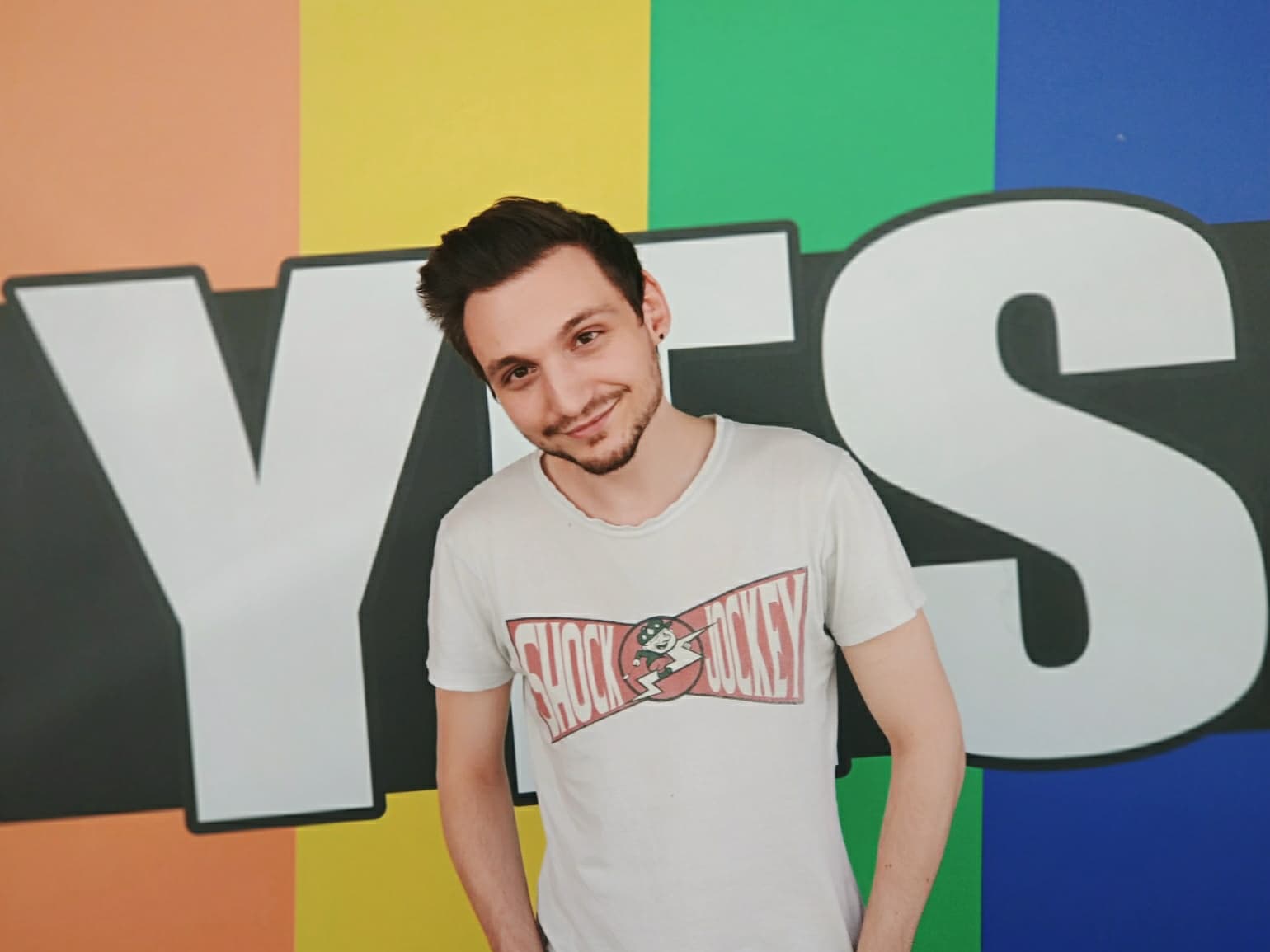Nik Pantis

- Role: Games designer and producer
- Location: Melbourne, Australia
We chatted with Nik about their work as a game designer and producer.
QRM: Can you tell us a little bit about who you are and what you do in the games industry?
Nik: My name is Nik and I'm a producer, designer, and writer for games with a strong background in psychology. I identify as non-binary and pansexual. After studying psychology I made it my goal to apply psychological principles to the design of games in an effort to create more fulfilling experiences, with the hope of one day making games that help people. As someone who came quite late into identifying as non-binary, I feel as though representation in video games is incredibly important and I hope to do this with my games. At the moment I do a lot of solo developer work, but I hope to join a talented and passionate team at some point to deliver these representative and potentially educational experiences to the world.
QRM: How long have you been involved in the game industry, and what projects have you worked on? What are you working on currently?
Nik: I've been involved in the games industry for about two years and my proudest achievement so far is a mobile arcade game I worked on that was accessible to players with colour-blindness. This is just the beginning and I hope to make other games that are accessible and representative.
QRM: What inspired you to get started in the games industry?
Nik: I suffer from severe depression and anxiety and have undergone therapy. While I completely understand the value and importance of therapy in the treatment of mental health issues, I found that something that helped me even more during my worst times were games. After studying psychology for 4 years, I decided I didn't want to go down the traditional path of delivering psychological help through traditional therapy and began studying games in the hope of creating experiences for players with depression and anxiety that might alleviate some of their symptoms.
QRM: In what ways do you feel your experiences as a queer person manifest in the games you work on, and influence the work you do?
Nik: The only way I can think of its influence is that I have a goal of representing the queer community in my games, and try to do so whenever possible.
QRM: Do you have a favourite queer character—in games or media more generally? If so, what is it about them that makes them your favourite?
Question asked by @kamienw.
Nik: It's difficult to pin down a favourite queer character, but I absolutely love the fact that Tracer, the face of the incredibly popular Overwatch, is queer. She is such an incredibly positive character. Most of all, I love that her being queer isn't overly important – it was touched on during Blizzard's transmedia animated shorts. This is the perfect kind of representation. Her relationship with a woman is so normal.
QRM: Have you ever encountered roadblocks in trying to include queer characters in games? What do you think is preventing greater diversity within games?
Question asked by @dustinalex91.
Nik: Honestly, the only roadblock I've encountered is creating a game that doesn't feature a character!
QRM: Why do you think it is important that queer audiences are able to see themselves represented in the games they play, and in the developers who make the games they see? What can we do to improve the industry for queer audiences and devs?
Nik: One of the most important reasons is the feeling of being valid. I know that for the longest time I didn't feel comfortable sharing my sexuality (pansexual) for fear of persecution. I came out as gay when I was 16 and once I realised I was attracted to people regardless of gender, I was afraid that people would see me as "changing my mind" or that it might perpetuate the idea of sexuality being a choice. Having representation in games makes diverse sexuality and gender identity feel "more normal" and accepted, and this makes me feel better. As developers, we can make games better for audiences by featuring characters of a wide range of sexuality and gender identities. This would also help and educate non-LGBTI+ developers on how representation can be achieved with minimal effort.
QRM: Have you ever mentored somebody in your role in games, or been mentored? If so, what made these experiences worthwhile for you?
Question asked by @pepelanova.
Nik: Unfortunately I haven't had the pleasure of either, but I'd love to find someone to guide me in my journey.
QRM: In what ways can non-queer folk increase and support queer diversity present within games, as well as in the industry more broadly? How can we all work to support intersectional approaches to diversity, and why is this important?
Nik: Hiring queer developers is probably the best method of helping the industry represent diversity in games.
QRM: Is there a message that you would like to share with the queer game players, game studies researchers, and other interested folks who comprise the Queerly Represent Me community?
Nik: The people of the games industry are amazing, talented and understanding people, and each and every one of us wants to make an experience that players will enjoy. Take comfort in the thought that we want players of our games to enjoy our games – so representation is on the rise. The future is bright.
*
